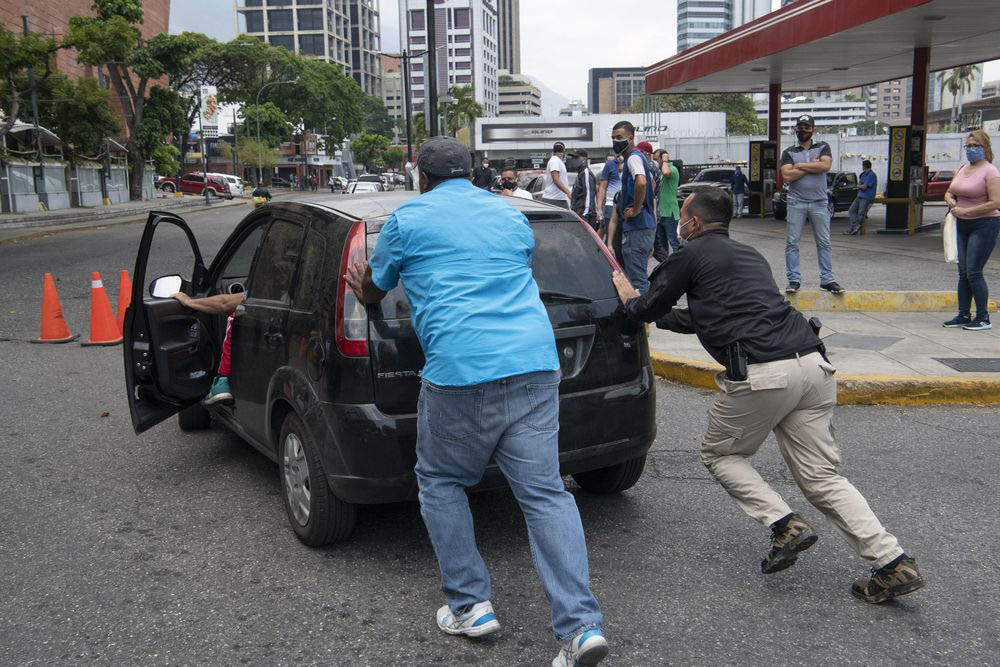In one of the more telling indicators yet that Guyana’s western neighbour, Venezuela, has fallen on seriously hard times, the country’s President, Nicholas Maduro, announced on Sunday that beginning last Monday, the country officially credited with possessing the single largest reserves of oil anywhere, has set aside its long-standing policy of providing citizens with gasoline at highly subsidised prices.
Long pampered by access to what was reportedly “the world’s cheapest fuel”, consumers, as of last Monday, have been purchasing gasoline at “international market prices” – US$1.90 per gallon. Additionally, Venezuelans will have monthly access to a limited amount of subsidized gasoline, at US$0.9 cents per gallon.
Setting aside the new additional burden on a country whose economy, in recent years, has declined dramatically, forcing illegal migration to neighbouring countries, Venezuelans will no longer be able to simply take ‘dirt’ cheap gasoline for granted. ‘Rock bottom’ gas prices in Venezuela had triggered a thriving trade in cross-border smuggling to various neighbouring countries, including Guyana, where several miners have benefitted significantly from not having to pursue the considerably more expensive option of moving fuel from the coast into the gold-mining regions of the country. Maduro is quoted in the media as saying that the significant hike in gas prices in Venezuela signals that a time has come to move towards “a new normality.”
So severe has been the pressures from the Trump administration that have compelled US oil companies to cut ties with the Venezuelan oil industry and strangled the country’s fuel exports that recently, Venezuela experienced the unthinkable reality of a gasoline shortage that forced a resort of securing gasoline imports from Iran. So huge have been the levels of gas consumption by Venezuelans over the years, that the five huge tankers of gasoline that arrived in the country a matter of days ago is not expected to last beyond a few weeks. Iran is also reportedly involved in helping the Venezuelan state oil company PDVSA to restart gasoline production.
While, in the wake of the historic shift in the country’s ‘cheap gas’ policy, Maduro has charged that – not for the first time – that the US is leading an economic war against Venezuela, conflicting opinion asserts that the current circumstances are a function of years of corruption and mismanagement by government, dating back to the tenure as President of the now deceased Hugo Chavez.
The economic squeeze which Venezuela has had to endure has been attended by periodic fuel shortages though scarcity and mile-long lines at filling stations have reportedly been evidenced in Caracas in recent times.
Adjusting fuel prices has long been a political ‘hot potato’ in Venezuela. Price hikes in 1989 sparked serious riots that led to nearly 300 deaths. Whether the arrangement with Iran involves a sustained supply of gasoline is unclear and whether the likely frequent presence of Iranian vessels in what is considered to be America’s ‘backyard’ might not, at some stage, spark an incident, remains an imponderable.










